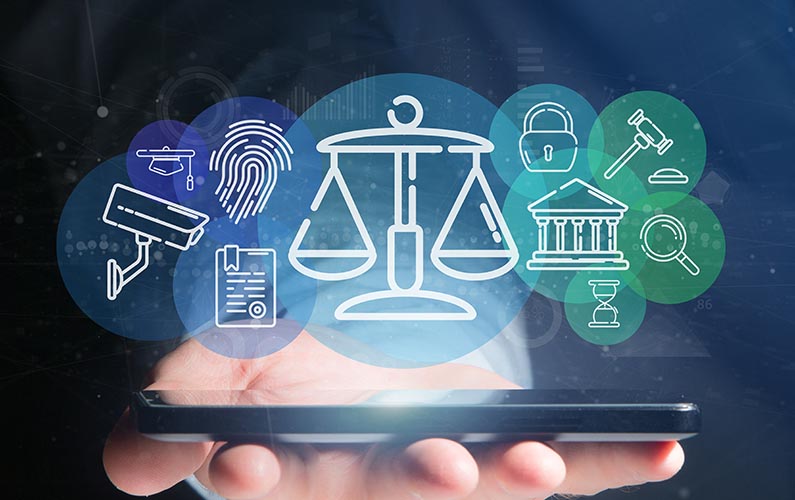E-government is a powerful tool to modernise administration and provide services directly to citizens. What are its benefits and how can we build successful e-government? Interoperability, data-driven working, inclusiveness, and cybersecurity are key elements of successful e-government. Learn more about examples from The Netherlands.

E-government plays an important role in the pursuit of good governance. Through the use of information and communication technologies (ICT), governments can improve their efficiency and better deliver services directly to citizens, instead of going through internal, often bureaucratically complex, governance structures. Medical care, justice, education, safety and other crucial municipal services can be processed and delivered digitally with the use of ICT. Governments can also make public data available digitally – which helps to prevent corruption, enhances trust, inclusion, and citizen participation in the policy process, and promotes an open and accountable government.
While e-government was developed as a powerful tool that modernises local and national administrations, its implementation has posed a number of challenges for countries that wish to grasp its benefits. Legislative and regulatory barriers, financial barriers, and the digital divide can impede the success of e-government. So what makes e-government work?
We believe that the following four key elements, while each admittedly difficult to achieve, form the foundation for successful e-government initiatives.
Information standards and interoperability
“Information standards are necessary to allow people and systems to exchange and re-use information”
– The UK Information Standards Board.
E-government facilitates interoperability – the ability of multiple governmental and non-governmental bodies to share and integrate information across their traditional organisational boundaries. This can be achieved by means of agreements on the use of data between different government agencies.
Key registers, for example, are an important means of this in the Netherlands. It is the basis for the Dutch government’s e-government structure and a precondition for further development of e-government policies. The National Office for Identity Data (RvIG) of the Netherlands is the authority and coordinator for the secure and reliable use of identity data. Is the person before you who they say they are? The security and reliability of identity data are essential elements in our daily lives. Behind the data found in physical documents, such as passports and identity cards, an entire world of information goes unnoticed. The RvIG securely stores identification information in its databases, information that is relied on by public authorities, like municipalities, to provide essential services.
The use of data: data-driven working
“Creativity is about coming up with the ideas, but data is the key to assessing if something is working”.
– Netflix co-founder and its first CEO, Marc Randolph
Over the last decade, the Open Data movement has highlighted the value of data and encouraged governments to release it for reuse both inside and outside the public sector. A good example of data sharing by the government in the Netherlands has been the sharing of a dashboard of the number of COVID-19 infections, with age, gender and city disaggregated data, among others.
But governments must go further. A data-driven public sector recognises that data is an asset, integral to policy making, service delivery, organisational management, and innovation. By collecting and analysing data, governments can use evidence to improve decision-making and service delivery. At the same time, a good legal framework for the use of data is key to preventing its mismanagement.
Inclusive service delivery
“Rapid digitisation has heightened the country’s digital divide”
– Australia Post
There are various benefits that can be harnessed when government departments provide e-services, such as a significant reduction in costs, and uninterrupted, reliable provision of public services, anywhere and anytime. E-government has also emerged as a perfect platform for achieving some of the Sustainable Development Goals. A government can work more efficiently by providing digital services. The service itself can also improve by offering it digitally, although this also offers pitfalls for portions of the citizenry who are less digitally literate. In The Netherlands as in many other countries, for instance, the National Institute for Public Health offered proof of Covid-19 vaccination digitally, and additional offline options for those who couldn’t access digital platforms.
Digital services are more than having a good (municipal) website, where a citizen can, for instance, submit an application for a permit or obtain information. It requires a public institution to design work processes in a different manner. But it is also about communicating in a different way with citizens, the standardisation and exchange of data, information security, and as always, guaranteeing privacy.
Privacy and cybersecurity
“Cybercrime is nothing new, but increased levels of connectivity, remote working, reliance on technology and automation means the risk of attack is rising rapidly”
– Network of audit, tax and consulting experts RSM UK
Along with the many benefits of the digital transition come heightened risks. For example, the biggest risks in the Netherlands that have emerged with a digitally active population are fraud through cybercrime and cyber-attacks on companies and government institutions that store sensitive (and personal) data. It is necessary to develop policies and legislation to mitigate these risks.
The National Cyber Security Centre (NCSC) in the Netherlands, for example, informs and advises critical providers and components of the central government, providing up-to-date threat and incident information about their network and information systems. As cyber threats emerge, so must its countermeasures.
______________________________________________________________________
The Hague Academy designs and delivers a hybrid professional development course on E-Government. Funded by the Shiraka programme of the Dutch Ministry of Foreign Affairs, the training is available for civil servants from the MENA region. To learn more about this programme and stay up-to-date with upcoming registration deadlines, please visit our Shiraka webpage. To request customised training on this topic, please fill out the form at the end of this page.
This article was written based on training materials developed on this topic by our implementation partner PBLQ.
Related courses
We offer a diversity of courses throughout the year. Here are several other courses you might like.

